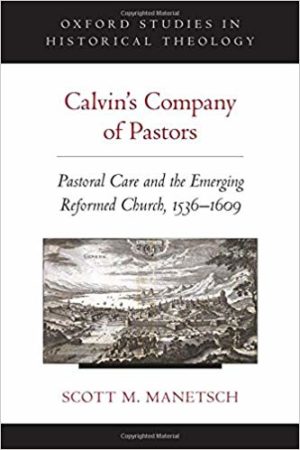This month my selection is a book that has been on my shelves for quite a while, but which I recently pulled down and read. Calvin’s Company of Pastors is a fascinating social history that records how Reformed pastoral ministry first took root in Geneva, and how it flourished there in the decades following.

I was drawn to the book because of some of the ecclesiological challenges we are working through here in Moscow. How do you relate various congregations, a college, and different publishers, and so on, in a tightly-knit community with a common faith? This would include head bonks and all. And let’s not forget the haters.
One story told is about a Jesuit who visited Geneva and spent a short time there. During his visit he was struck by the paucity of cursing and blaspheming that he heard in the streets, and concluded piously that it was a trick of the devil.
One of the more striking realities that came home to me is how much things are the same as they have always been. Even when you factor in the things that are strikingly different (e.g. the Internet), this just reinforces the fact that things like the Internet have only enabled people to act just like people at high rates of speed.
The one great difference between then and now can be found in the fact that because our modern schizophrenia about church and state had not taken root, this meant that cities, as cities, remained Roman Catholic or became Protestant. And if you were like Calvin, holding a high view of church discipline, and your city became Protestant, this meant that everyone in your town was a member of your parish, and subject to the discipline of the church. Today the hard core churches are the ones that practice church discipline with members who joined voluntarily. If you are a pastor, imagine holding to Calvin’s strict views of discipline, and then discovering that the city council of your town of 20,000 souls just voted to give your session spiritual authority over everybody. If that doesn’t capture your attention, I am afraid you need to have your blood pressure checked.
Scott Manetsch writes engagingly and well, and if you have any interest in pastoral ministry at all, there is a wealth of information here. Manetsch is a master of his material, and he holds your interest while presenting it. It looks like a formidable academic tome, but it acts like a page-turner.

